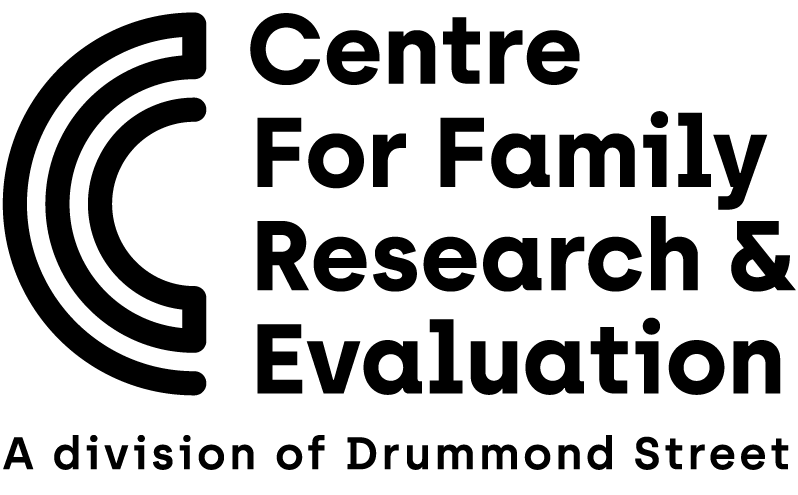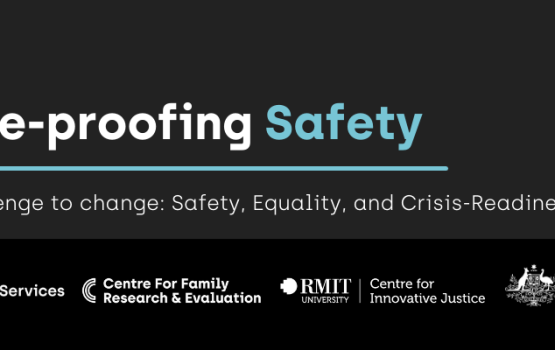Future-proofing Safety sought to understand how services across Victoria responded to family violence during COVID-19. The research was led by the Centre for Family Research and Evaluation (CFRE) at Drummond Street Services, in partnership with the Centre for Innovative Justice (CIJ) at RMIT University and the Australian Institute of Family Studies (AIFS), and funded by Family Safety Victoria,
What did we do?
Future-proofing Safety took a system-wide view of service interactions for people who experienced or used family violence during COVID-19. The project design recognised many conventional entry points to support fell away during the COVID-19 period. This occurred as practitioners contended with unprecedented challenges to support a population in crisis, while simultaneously adapting to the changes that the crisis brought about in their own lives.
The project’s key research questions were:
- Have there been changes in drivers, needs, presentations, risk and intensity of family violence and sexual assault since the pandemic began? Has this been different for different cohorts?
- How have services adapted to deliver different family violence service responses? What is the effectiveness and sustainability of these changes and innovations across different services and sectors?
- What gaps and weaknesses within the family violence and sexual assault service system and broader sector have surfaced during COVID-19?
- How do we respond to and recover from the current crisis? How can services address the gaps in the short, medium and long term?
- How do we plan for future disasters/crises?
How did we do it?
The project used a mixed-methods approach that recognised the breadth and depth of data collection necessary to tell the complex and multi-layered story of family violence during COVID-19. Within this approach, a range of methodologies were used, with research components divided into three streams.
- Sector engagement included working with organisations that provided support and services to people who experienced family violence or used family violence during COVID-19 in Victoria. This stream collected data through:
- a survey of sector professionals, conducted by AIFS
- focus groups with practitioners and managers from the range of services, conducted by the CIJ.
- Client voice that involved individual, semi-structured interviews with service users to support an understanding of how people experienced the spectrum of the service system in the context of COVID-19, conducted by the CIJ.
- Data storytelling involved:
- three detailed organisational data case studies, developed from data collected by three key Sector Partners – Drummond Street Services, Good Shepherd and GenWest
- a targeted case file review of 70 case MARAM risk assessment tools and associated safety plans collected from participating organisations.
What was the impact of the research?
The research highlighted significant challenges and opportunities for services and clients that emerged over the pandemic. These included elevated client risk and need, changed service responses, gaps and weaknesses within the family violence and sexual assault service system, and the complex impacts of COVID-19 on the workforce.
In addition to highlighting key findings and recommendations, the final research report takes a future focus by offering a framework for crisis readiness responses to future-proof how Victoria responds to family violence and disadvantage during future crises.
Final report and resources
- Read the full final report here.
- For those that don’t have time to read the full report but would like an overview of the key findings and recommendations, please click through our interactive report below.
- The Future-proofing Safety Crisis Readiness Framework aims to support frontline staff, organisations, sector leaders and peak bodies from across family violence and sexual assault service system, and the Victorian Government to effectively prepare for and respond to future crises and shocks.
- The Future-proofing Safety Organisational Case Studies explored family violence service data before and during COVID-19 for clients accessing GenWest (formerly Women’s Health West), Drummond Street Services and Good Shepherd before and during the COVID-19 pandemic.

